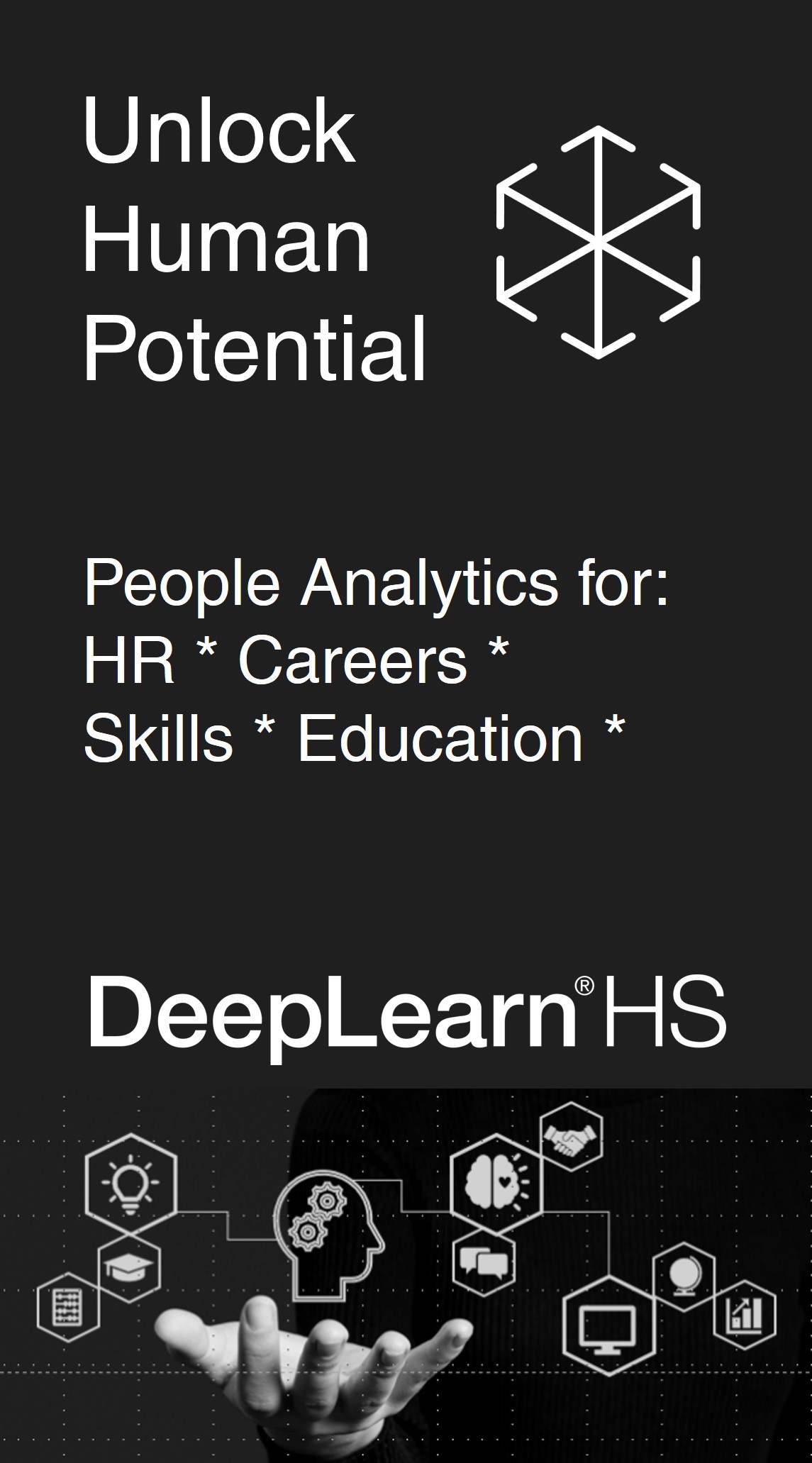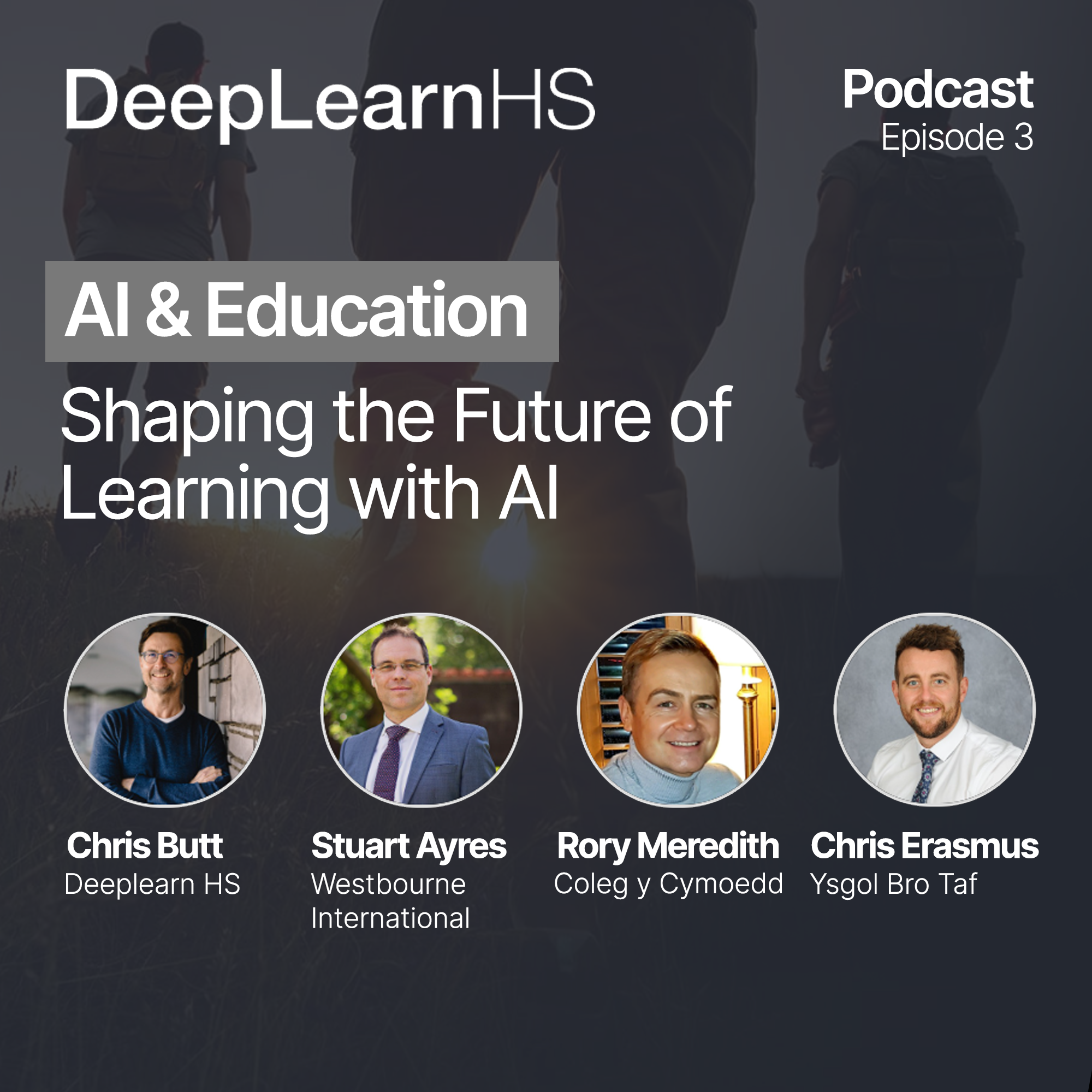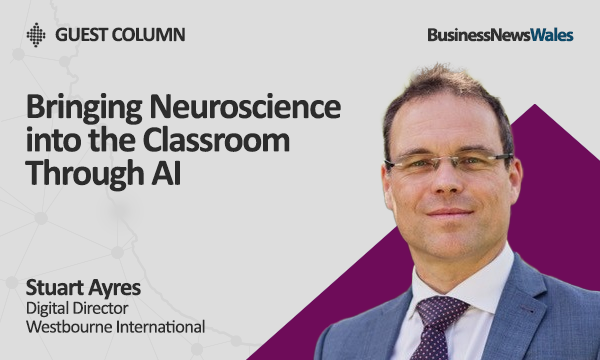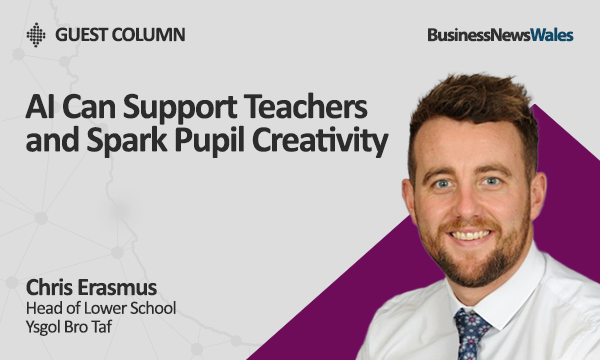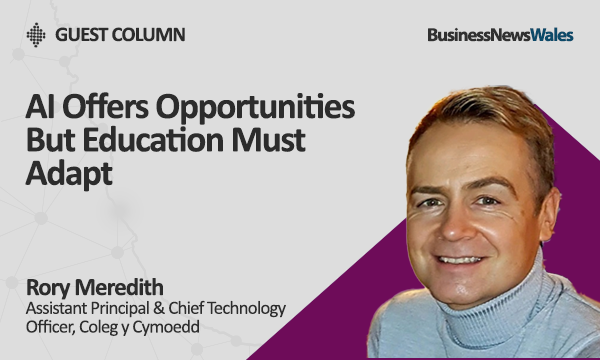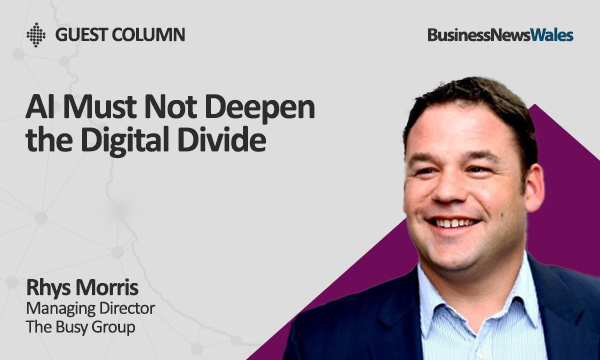Advances in artificial intelligence offer a significant opportunity to reshape the learning experience, say education leaders – but only if curriculum and assessment models evolve in step.
With AI increasingly used to support teaching and personalise learning, the technology has the potential to reduce workload, unlock creativity and support more equitable outcomes. But there’s concern that current approaches to curriculum design and assessment are not keeping pace.
Speaking on the DeepLearn HS Talent & AI podcast series, Chris Erasmus, head of lower school at Ysgol Bro Taf, said his school is already seeing how AI can support both teachers and pupils.
“We’ve used it to streamline data analysis and reduce the administrative burden on staff,” he said, adding that it now forms part of the school’s professional learning offer.
Chris is particularly struck by how AI is helping to close the gap for disadvantaged pupils. He described how some children who do not have the same access to books or to cultural experiences outside school as some of their peers can struggle with creative writing, for example.
“AI tools have given those children a way in, helping them build vocabulary, structure their ideas and write with more confidence,” he said.
Chris cautioned that the human element of teaching must remain central, and said professional judgement was essential in guiding how and when AI should be used.
Stuart Ayres, digital director of Westbourne International, echoed that view.
“This is the first time I’ve seen a tool that has the potential to fundamentally shift what we can offer to students and what they can do for themselves,” he said.
Westbourne’s bespoke AI tutor, KnowVa Coach, is designed to provide instant, personalised feedback, helping students revise more effectively and gain deeper understanding.
Stuart believes AI’s real value lies in its ability to personalise learning at scale.
“Information is everywhere,” he said.
“What students really need is help navigating it – and that’s where AI can make a difference.”
He added that the use of AI also frees up teachers to focus on one-to-one support, making better use of their time.
However, he said these benefits must be matched by a shift in how learning is assessed.
“AI can generate a response in two seconds – really it’s pointless now setting homework to write an essay,” he said.
“If we are just asking students to write an essay about a subject, what were we actually trying to test?
“How do you teach to make sure the student is understanding? And then how do you assess? And ultimately, why are you assessing anyway? That leads us to the future of AI and what we're going to use it for in the next few years.”
Rory Meredith, assistant principal and chief technology officer at Coleg y Cymoedd, agreed that AI has the potential to enhance both teaching and operational efficiency in further education. But he said more clarity is needed on how education systems adapt to prepare learners for the world of work.
“Education is ultimately about opportunity, and that means understanding what skills will be needed,” he said.
“We’re still learning what work will look like in ten years’ time. So the real challenge is how we prepare students for an uncertain future.”
Rory also noted that the advent of AI cannot be allowed to deepen the digital divide, particularly in areas of deprivation. Whilst the college has already taken steps to address issues with access to devices or connectivity, infrastructure and access remain a key issue if AI is to support equity, he said.
He too believes that assessment systems will need significant reform, calling for “radical assessment reform”.
“You can’t just police the use of AI in coursework,” he said.
“We need to look at learning as a process, not just an outcome. That means redesigning assessment to reflect how understanding is developed, not just what’s written on the page.”
Chris Butt, founder and CEO of DeepLearn HS, said that as well as supporting individual learning, AI could help create a stronger bridge between education and employment.
“It can help students understand their own strengths and see where those might take them,” he said.
“It’s not about sorting people into boxes. It’s about helping them build pathways that match their abilities and aspirations.”
He said DeepLearn’s work focuses on human attributes such as cognition, emotional intelligence and social skills, as well as technical ability.
“If we can link those attributes with the kinds of jobs that are emerging, we can help people make better choices and avoid the randomness that often shapes early career paths,” he said.
Chris also believes the curriculum needs to be rebalanced to focus more on creativity, imagination and problem solving.
“AI can’t replace those human qualities—but it can give us the time and space to focus on them more. That’s where the opportunity lies,” Chris said.
All four leaders agreed that collaboration between education providers, employers and policymakers will be essential.
Chris Butt said:
“This is about partnership and collaboration from policy and government through to business, and to schools and education providers. We've all got to really work together.”



